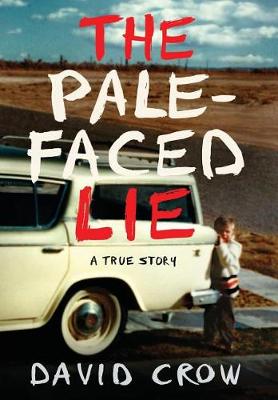David Crow survived a chaotic childhood led by parents who definitely did not have their children's best interests at heart. His father was an ex-con who worked for the Bureau of Indian Affairs. On the side he stole items from the Bureau to sell. He was also involved in many other illegal activities including murder. His mother was mentally ill and tormented by his father. His father went to extremes of gaslighting her and getting the children to terrorize her. They went along with it because they were so scared of him.
Besides the cruelty at home, David was brutalized at school and in his neighborhood on the Navajo reservation. The book recounts the horrific poverty and the effects of alcoholism on the community. It isn't a sympathetic recounting. He was a child who considered the Navajo men as people to be humiliated and scorned and hurt if possible. He was lashing out at people who were in a worse position than he was.
His father was very threatened by the success of his children. Some people might read that as strange but I know people like that. They are very resentful of their children being more successful than them. These families have generations of abuse in common. The parents go on and on about how they could have been as successful as their children if they had the idyllic childhood they gave their kids instead of the poor and abusive childhood they had - even when they were also highly abusive to their children. I don't understand why the children of these families stay in contact as adults. That played out here. He tried to make normal relations with both his mother and father.
The showdown that was discussed in the blurb was a bit of a let down. I was anticipating a thriller-ready battle of wits that ended with one person left standing. It really wasn't that at all.
I was intrigued by the beginning of the book but felt like the description of his childhood went on too long. He didn't give his transformation to a successful adult enough coverage. How did he go from a dyslexic kid with poor eyesight who didn't really pass his classes to being successful in college? Was the dyslexia ever treated? How did he manage to have the basic knowledge needed for his classes? It isn't ever fully discussed. He just did fine in college.
This is an uncomfortable book because everyone does horrible things in it. If it was fiction, it would be considered too unbelievable. I wish it would have focused more on how he worked to break the cycle of abuse and self-centeredness endemic in his family and how that led him to do the charitable works listed in his author bio. This isn't discussed in the book at all.
To read reviews, please visit David Crow's page on iRead Book Tours.
Buy the Book:
Meet the Author:
David Crow spent his early years on the Navajo Indian Reservation in Arizona and New Mexico. Through grit, resilience, and a thirst for learning, he managed to escape his abusive childhood, graduate from college, and build a successful lobbyist business in Washington. Today, David is a sought-after speaker, giving talks to various businesses and trade organizations around the world.
Throughout the years, he has mentored over 200 college interns, performed pro bono service for the charitable organization Save the Children, and participated in the Big Brothers Big Sisters program. An advocate for women, he will donate 10 percent of his book royalties to Barrett House, a homeless shelter for women in Albuquerque. David and his wife, Patty, live in the suburbs of DC.
Connect with the author: Website ~ Twitter ~ LinkedIn
Enter the Giveaway!
Ends May 25, 2019
This review was originally posted on Based On A True Story
